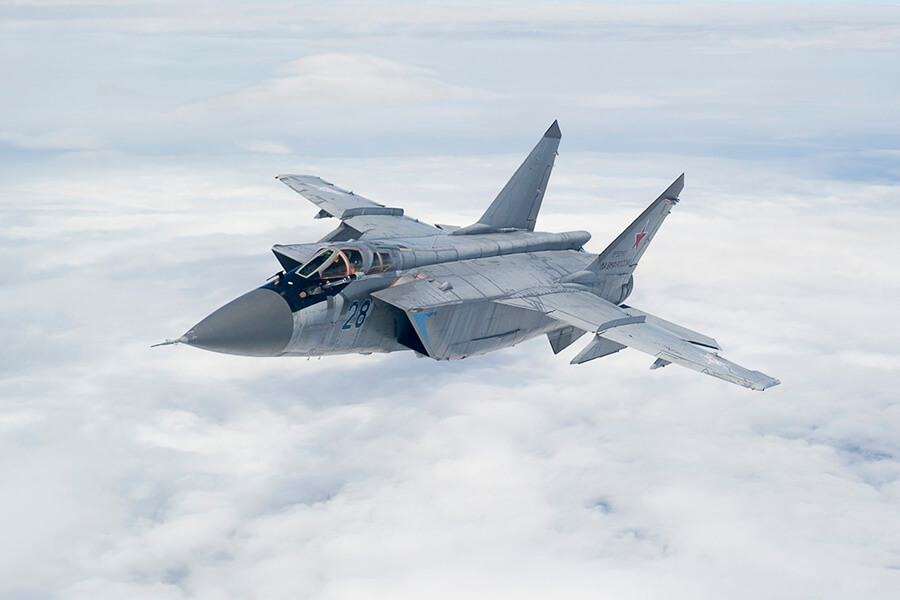A Russian MiG-31 fighter jet crashed during a training mission on April 26, 2017. Until now, the reason was kept secret by the Russian Ministry of Defense. But new information suggests that the aircraft might have been shot down by its own wingman.
Russian media reported at the time that the MiG-31 “Foxhound” fighter jet had crashed near Telemba test site in eastern Siberia during a training mission. The crew managed to eject successfully.
Two years later, the Russian independent media Baza reported that the aircraft was shot down by a Vympel R-33 air-to-air missile fired by another MiG-31 participating in the training mission.
The information comes from a report issued by the public corporation Aviaprom following the incident. This document states that the crew of the second aircraft failed to follow instructions and prematurely activated the Zaslon-AM radar fire control setting and, more importantly, fired a missile R -33 without prior authorization.
However, the pilots might not be the only ones to blame: in a nominal situation, the Identification, friend or foe (IFF) of the MiG-31 Zaslon AM radar should have warned the crew that their target was, in fact, their wingman, and not the air target of their training (usually a drone or an old aircraft on autopilot).
This computer mistake might be due to an incompatibility between the Soviet-era 8TK heat finder on board and the new Baget-55 computer. “According to our interlocutor, the pilots have repeatedly complained about their incompatibility and told that it is overcome only by manual manipulation”.
Such a mishap during training is not new. On August 7, 2018, a Spanish Eurofighter Typhoon, part of NATO Baltic Air Policing mission, accidentally fired a live air-to-air missile during a training mission over Estonia. The investigation carried out by the Estonian Ministry of Defense concluded that the incident was “a result of the pilot’s failure to comply with the safety rules and regulations”.

